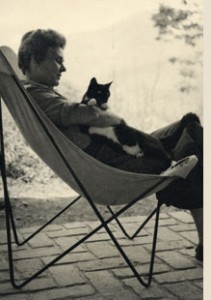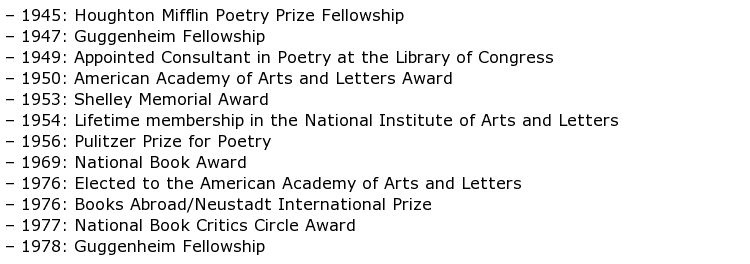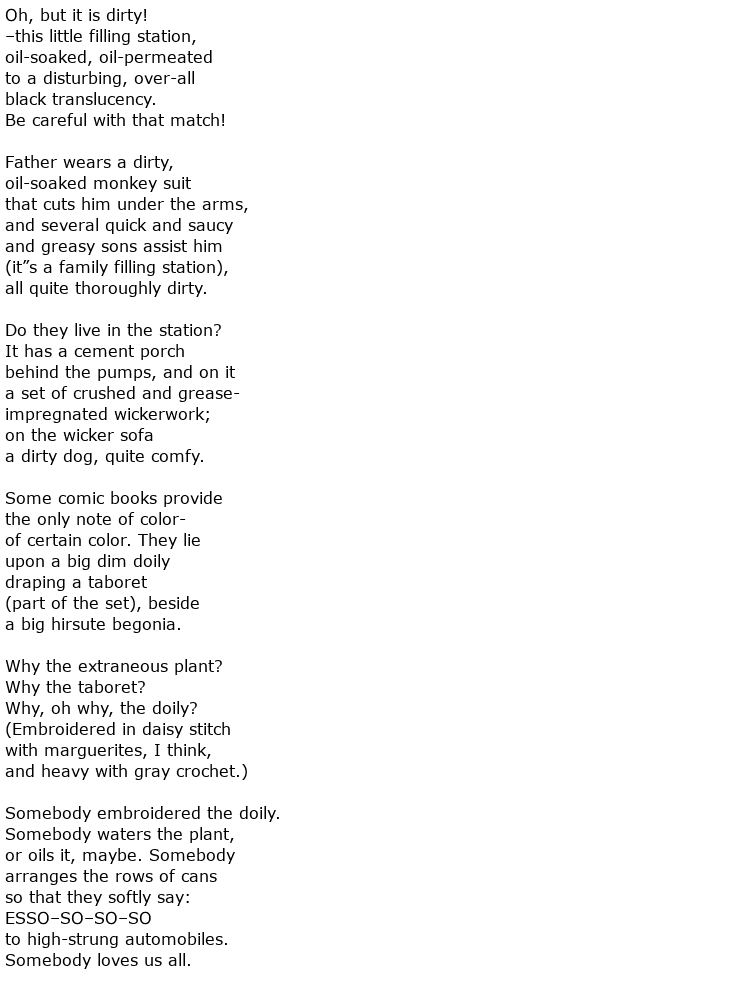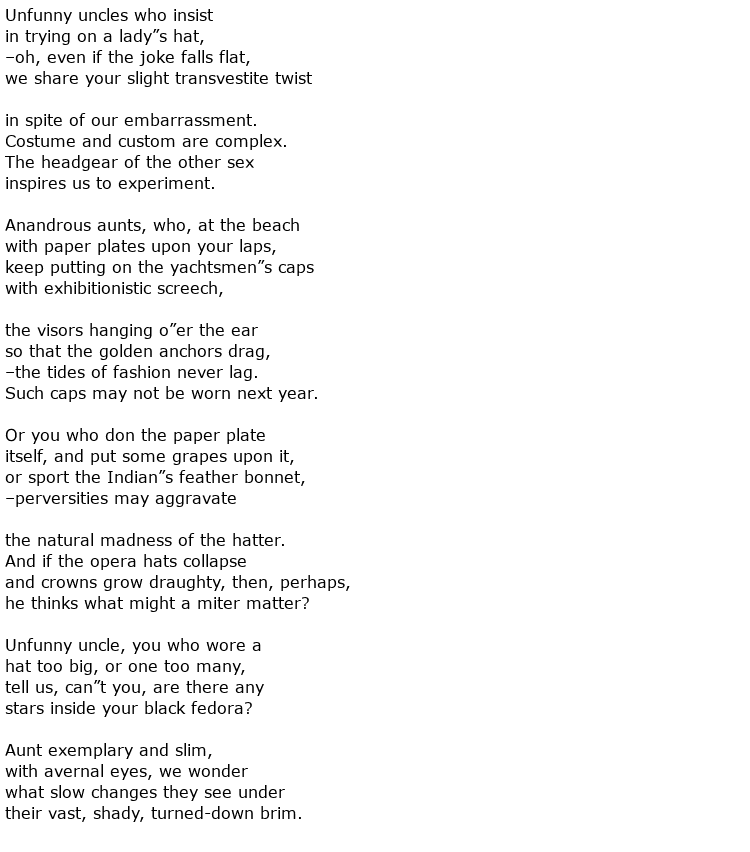
 Esso cans. Cats named Minnow. Fish houses. All the detritus of everyday life, scenes and items and even people destined for obsolescence – these are are subjects that Elizabeth Bishop captured in her poetry, these things filled with the intent to be lost.
Esso cans. Cats named Minnow. Fish houses. All the detritus of everyday life, scenes and items and even people destined for obsolescence – these are are subjects that Elizabeth Bishop captured in her poetry, these things filled with the intent to be lost.
Maybe Bishop herself was a little afraid of being lost. Born in Massachusetts in 1911, Elizabeth Bishop was raised by a succession of relatives after her father”s death and her mother”s hospitalization. As a result of this shuffle from house to house, Bishop once commented that she evermore felt like “a guest.” Educated at Vassar, Bishop was all set to attend medical school when the Vassar librarian arranged a meeting between Bishop and poet Marianne Moore – a meeting that changed the course of Bishop”s life. Medical school was out. Elizabeth Bishop from then on was a poet.
Thankfully, Bishop did not need to work as a doctor to support herself. A sizable inheritance from her father left her independently wealthy, and therefore financially able to dedicate herself to her poetry, and to travel extensively. Her experiences in her travels throughout the world were reflected in her poetry.
Bishop”s poetry earned her some of the most coveted awards in the world of writing. Among the awards she received:

The final Guggenheim Fellowship was awarded after Elizabeth Bishop”s death from an aneurysm in 1979.
Perhaps one of the factors that contributed to the popularity of Bishop”s poetry was its impersonality. Bishop wrote poems that most often detailed other people, places, or things; rarely did she turn her pen inward and write of more personal experiences and feelings. However, her witty, graceful verse captured even those experiences and people most unlike Bishop memorably.
An excellent example of Bishop”s poetry is “Filling Station:”

It”s a scene familiar to all, but rarely the subject of poetry, yet Bishop immortalizes the grubby filling station improbably accented by doilies and plants, with the benediction “somebody loves us all.”
Bishop captures another common, but rarely celebrated experience in “Exchanging Hats:”

Bishop takes a silly joke – trying on the other sex”s hat – and makes it into an interesting question into both human motive and desire.

